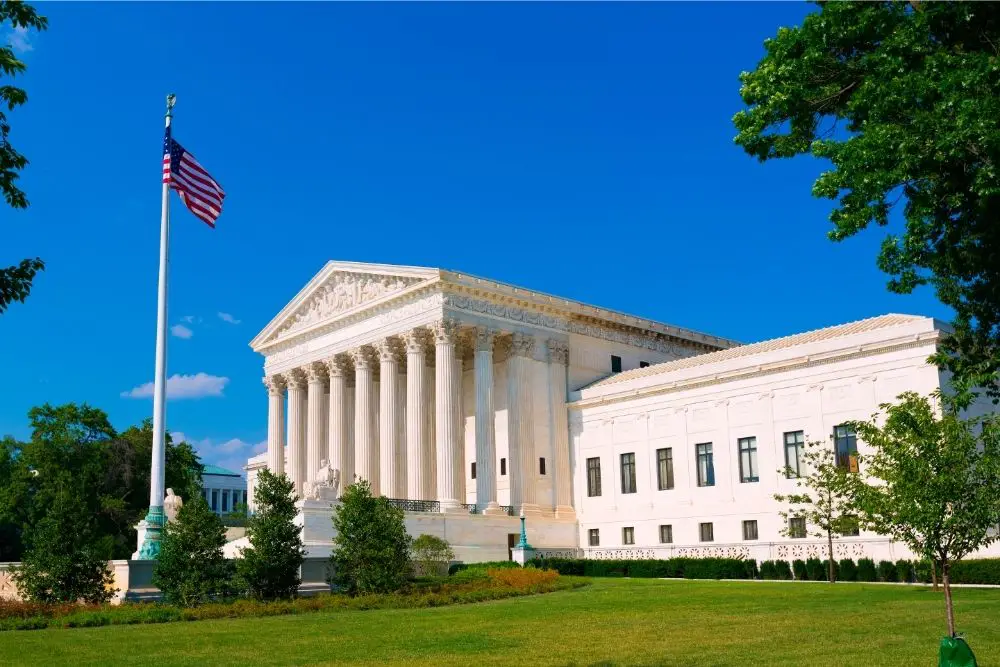Last Updated on May 11, 2022 by Fair Punishment Team
If you have been involved in a legal dispute, then it is likely that you have heard of both State and Federal Appellate Courts. Appellate Courts are different from regular Courts, and that is why a lot of people (who haven’t been involved in a legal case) will not have heard of them.
One thing that confuses people, even those who are familiar with these types of Courts, is what the difference between the two are, and more importantly, if these types of Courts are similar.
In this guide, we’ll be taking a look at what both State and Federal Appellate Courts are, and comparing them to see if they are more similar or different from one another. So to find out more, keep on reading.
What Are State Appellate Courts?
First, let’s take a quick look at what a State Appellate Court is. As the name suggests, State Appellate Courts operate at a State level, so these Courts will handle cases for the entire State. But what cases could they be handling? Let’s take a look.
Well, Appellate Courts have one sole responsibility, and that is to hear and review appeals. These Courts will hear and rule on cases that have already been heard and ruled upon in lower courts, by judges and juries. If the rulings of these cases are appealed against, then they will be passed onto an Appellate Court.
Once passed onto an Appellate Court, the case will be heard again, and the appeal will be reviewed. The main way in which Appellate Courts differ from regular Courts because the review will only be heard by Judges, often known as Justices. There are no juries in Appellate Courts, instead the ruling is solely made by legal professionals.

What Are Federal Appellate Courts?
So, how do Federal Appellate Courts differ? Well, at a basic level, State and Federal Appellate Courts are very similar to one another. This is because they have the same purpose as one another, and that is to hear and review court appeals.
But, Federal Appellate courts differ from State Appellate Courts because they deal with court appeals at a Federal level. So, State Appellate Courts will deal with State laws, whereas Federal Appellate Courts will hear appeals for Federal offenses. So, Federal Appellate Courts will specialize in Federal laws.
Aside from that, these two Courts are very similar. Both Courts will not have juries or peers present, instead all rulings will be made by Judges, or Justices. But is there anything else that makes these Courts similar to one another? Let’s take a deeper look at this.
How Are State And Federal Appellate Courts Similar?
Yes, State and Federal Appellate Courts are similar to one another. Ultimately, they are designed with the same purpose (to hear and review appeals), so the design of these Courts is very similar to one another.
Both of these styles of Court were set up to review cases and determine if the law has been applied correctly. During this, the Appellate Courts will also look at the evidence (see also our article on class evidence) used to draw the verdict, and assess if this evidence was enough to justify the ruling.
As we have said, in a lot of ways, State and Federal Appellate Courts are very similar. This is because of their shared purpose, and the fact that they are both very different from Supreme Courts. As you would expect, Appellate Courts have significantly less power than Supreme Courts, and this is something that makes State and Federal Appellate Courts even more similar to one another.
But, despite their similarities, there are some major differences between these two courts, so let’s take a look at what they are.
What Is The Difference Between State And Federal Appellate Court?
So, now that we have taken a look at the ways in which State and Federal Appellate Courts are similar to one another, let’s take a look at the ways in which they differ. As we have said, the main difference between these two courts is the cases that they cater for. But, let’s take a deeper look at how this one key difference makes these Courts different from each other.
Like we have said, State Appellate Courts hear cases that have been appealed from lower courts in relation to State laws. Whereas, Federal Appellate Courts hear cases that have been appealed from lower courts in relation to Federal laws.
Due to this, the people who work in these Courts will differ. So, State Appellate Courts will hear cases that have occurred between citizens of a specific State. Whereas, Federal Appellate Courts will hear disputes between States.
Aside from this, State and Federal Appellate Courts are actually very similar, and that is why it is so easy to confuse the two. But as long as you know that one deals with State laws, and one deals with Federal laws, then it is a lot easier to tell the difference between these two types of Appellate Courts.

What Role Do Appellate Courts Play In The Judicial System?
As we have said, the ultimate role of all Appellate Courts is to review old cases that have received appeals. In State law, Appellate Courts are positioned above lower Courts, as all decisions that are made in State Appellate Courts are made by judges, or justices.
Likewise, Federal Appellate Courts are also positioned above State Appellate Courts in the Judicial system. But, Federal Appellate Courts are positioned below the Supreme Courts. In the USA, there are 13 Appellate Courts sitting below the Supreme Courts, but you will most commonly hear these referred to as Courts of Appeal, not Appellate Courts.
Obviously, there are a lot more States in the USA than there are Courts of Appeal, and that is why each Court’s jurisdiction spans larger areas. So, Appellate Courts play a huge part in the judicial system as they are positioned below Supreme Courts, and fulfill the important job of reviewing appeals.
Summary
In short, State and Federal Appellate Courts are very similar because they were both set up with the purpose of reviewing Court cases that have been appealed. But, they do have their differences. We have taken a look at everything to do with the similarities and differences of these Courts in this guide.

